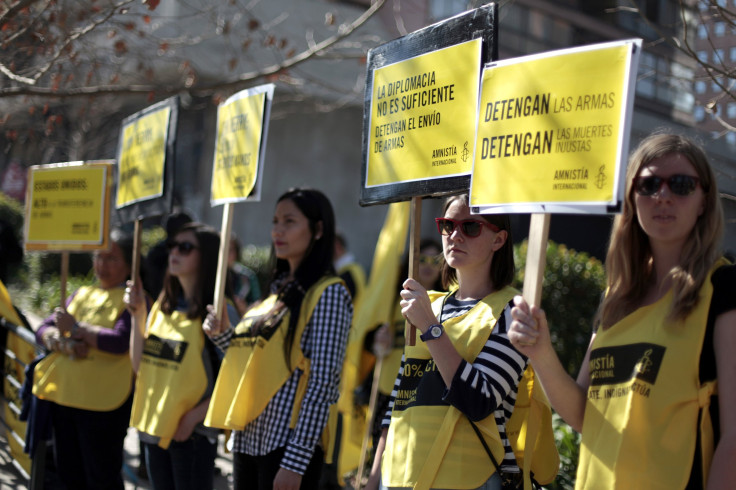Is Trump Bad For The World? Amnesty International Says Donald Trump's 'Poisonous' Rhetoric Is A Danger To The World

President Donald Trump's "poisonous" rhetoric during his campaign to win the presidential election led to a global trend in increasingly divisive politics, Amnesty International's 2016/17 annual report released Wednesday said.
"Donald Trump's poisonous campaign rhetoric exemplifies a global trend towards angrier and more divisive politics. Across the world, leaders and politicians wagered their future power on narratives of fear and disunity, pinning blame on the "other" for the real or manufactured grievances of the electorate," the report titled "The state of the world's human rights" read.
The publication also commented on the instability of the Trump-led administration, saying: "His predecessor, President Barack Obama, leaves a legacy that includes many grievous failures to uphold human rights, not least the expansion of the CIA’s secretive campaign of drone strikes and the development of a gargantuan mass surveillance machine as revealed by whistleblower Edward Snowden. Yet the early indications from President Trump suggest a foreign policy that will significantly undermine multilateral co-operation and usher in a new era of greater instability and mutual suspicion."
Covering 159 countries, the annual report also criticized leaders of other countries like Turkey, Hungary and the Philippines, and said they have used "powerful narratives of blame, fear and scapegoating, propagated by those who sought to take or cling on to power at almost any cost."
"Instead of fighting for people's rights, too many leaders have adopted a dehumanizing agenda for political expediency," Salil Shetty, secretary general of Amnesty International, said in a statement Wednesday. "In 2016, these most toxic forms of dehumanization became a dominant force in mainstream global politics. The limits of what is acceptable have shifted. Politicians are shamelessly and actively legitimizing all sorts of hateful rhetoric and policies based on people’s identity: misogyny, racism and homophobia."
The human rights advocacy group warned that 2017 will see more crisis caused by a lack of proper human rights leadership in a "chaotic world stage."
"With world leaders lacking political will to put pressure on other states violating human rights, basic principles from accountability for mass atrocities to the right to asylum are at stake," Shetty said.
Amnesty International's annual report includes the documentation of serious violations of human rights in various countries during 2016, and it specifically raised concerns for the future of human rights in the U.S.
"An election campaign marked by discriminatory, misogynist and xenophobic rhetoric raised serious concerns about the strength of future U.S. commitments to human rights domestically and globally," the report said.
© Copyright IBTimes 2024. All rights reserved.












